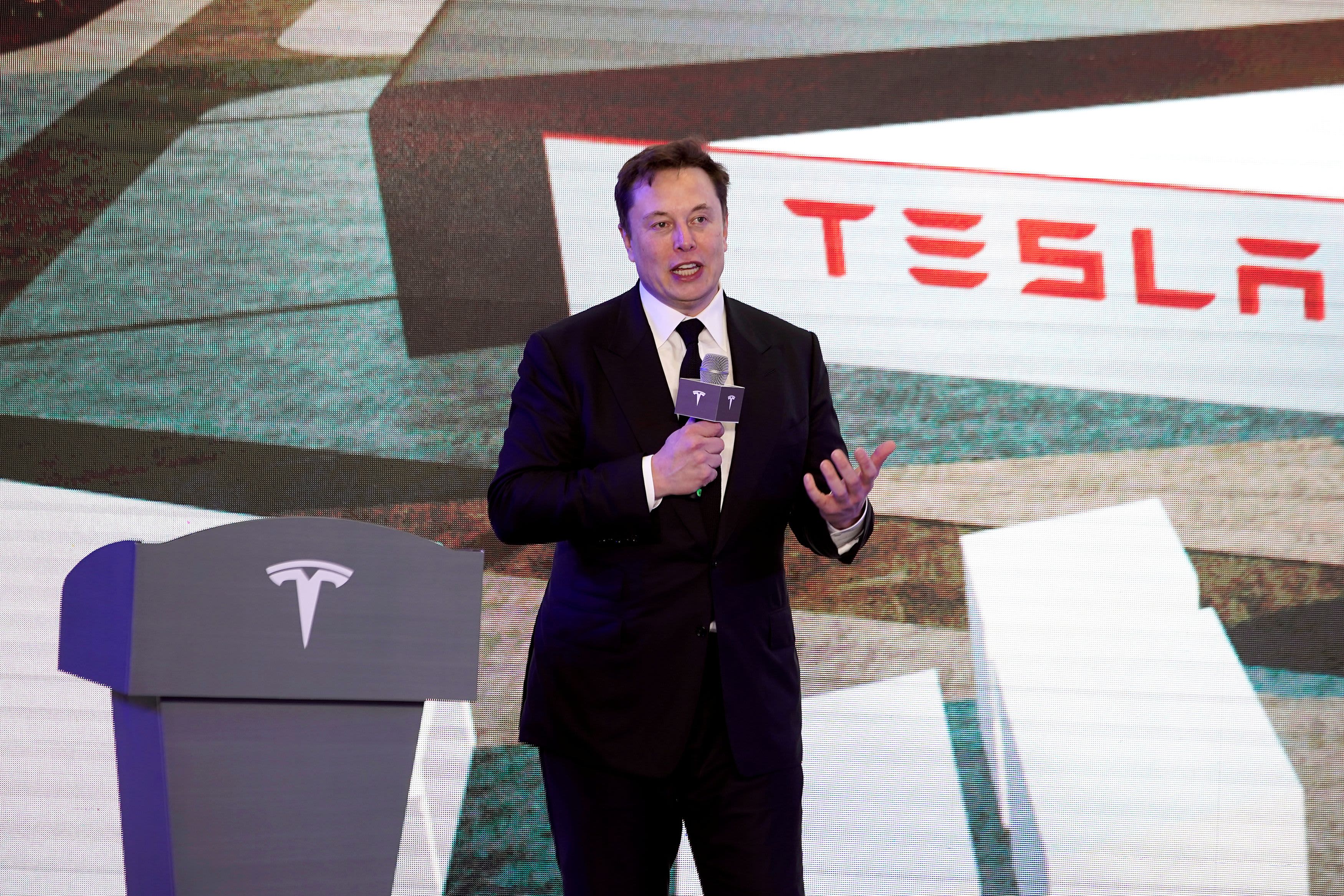Going green is increasingly becoming a way to make bank.
Elon Musk, the CEO of Tesla, is the richest of the billionaires who owe their fortune to technologies that reduce carbon emissions in the atmosphere, according to an analysis by Bloomberg Green that was published Tuesday.
A full $180.7 billion of Musk’s $199.2 billion net worth was deemed “green net worth” by Bloomberg.
Though Musk’s fortune is largely thanks to electric vehicle maker Tesla, some is from his holdings in SpaceX, and rockets emit carbon dioxide into the atmosphere when they blast off. For this reason, Musk’s wealth from SpaceX was not included in his “green” net worth.
Many of the rest of the so-called “green billionaires” are from China, according to Bloomberg Green, as China is a front-runner in the development and sale of technology to build clean energy economies. The list is also dominated by billionaires in the electric vehicle industry (and related component parts) and the solar energy industry.
For the ranking, Bloomberg Green used the net worth of each individual based on the Bloomberg Billionaires Index on Jan. 28, and also calculated the portion of their wealth driven by businesses that reduce greenhouse gas emissions. (In some cases, those numbers are one in the same.)
Further, if several business leaders made their fortune from a particular company, the billionaires and their collective net worths are grouped together in one entry by Bloomberg Green. (For example, Zeng Yuqun, Huang Shilin, Pei Zhenhua and Li Ping owe their status as billionaires to CATL, the battery maker. Bloomberg Green did not delineate how much of the total $60.7 billion in wealth generated from CATL is owned by each stakeholder.)
Here are the top five global green billionaires, according to Bloomberg Green. For the complete list, see Bloomberg Green’s ranking.
Elon Musk
Net worth: $199.2 billion
Green net worth: $180.7 billion
Country: U.S.
Company: Tesla, makes electric vehicles
Zeng Yuqun, Huang Shilin, Pei Zhenhua, Li Ping
Net worth: $61.6 billion
Green net worth: $ 60.7 billion
Country: China
Company: CATL, the world’s largest maker of electric vehicle batteries, supplies carmakers including Tesla, Toyota, BMW, Volvo
Li Zhenguo, Li Chunan, Li Xiyan, Zhong Baoshen
Net worth: $16.1 billion
Green net worth: $16.1 billion
Country: China
Company: Longi, the world’s largest manufacturer of “solar wafers,” which is what is used to build solar panels
Wang Chuanfu, Lv Xiangyang, Xia Zuoquan
Net worth: $ 33.5 billion
Green net worth: $13.4 billion
Country: China
Company: BYD, electric vehicle maker currently converting Shenzhen, China’s fleet of buses, taxis, and trucks into electric vehicles. Berkshire Hathaway, the investment company led by Warren Buffett, has owned a portion of BYD since 2008.
Liu Jincheng
Net worth: $10.9 billion
Green net worth: $10.9 billion
Country: China
Company: Eve Energy, a supplier to electric vehicle manufacturers, including clients such as Daimler, BMW, and Xpeng
Other notable billionaires on the list include Anthony Pratt, the owner of Pratt Industries, and Aloys Wobben, the founder of Enercon. Pratt Industries is the largest privately held producer of 100% recycled paper and packages and is located in Georgia (though Pratt himself hails from Australia). Wobben built his first wind turbine in the 1970s and started the wind-turbine manufacturing company Enercon in 1984.
Climate tech making new, green fortunes is not likely to slow. A report released in September from PricewaterhouseCoopers found investment into the space is accelerating. In 2013, early-stage venture capital funding for climate tech funding was $418 million and in 2019, venture funding in climate tech was $16.1 billion, according to the report.
“The bottom line is that demand for climate tech is only going to accelerate. With global corporations, investors, and governments pledging to transition to net zero value chains, portfolios and jurisdictions, they are all betting on climate technology breakthroughs to be found, scaled and to transform industries and society,” co-authors Celine Herweijer and Azeem Azhar wrote in the PricewaterhouseCoopers. “Demand is not yet at a stampede but the market is heating up and it’s time for all stakeholders to help back the innovations the world really needs.”
See also:
Carbon capture technology has been around for decades — here’s why it hasn’t taken off
The ‘1%’ are driving climate change, but it hits the poor the hardest: Oxfam report
Executives from Jeff Bezos to Ford Motor Co.’s Bill Ford: Fighting climate change means job creation
